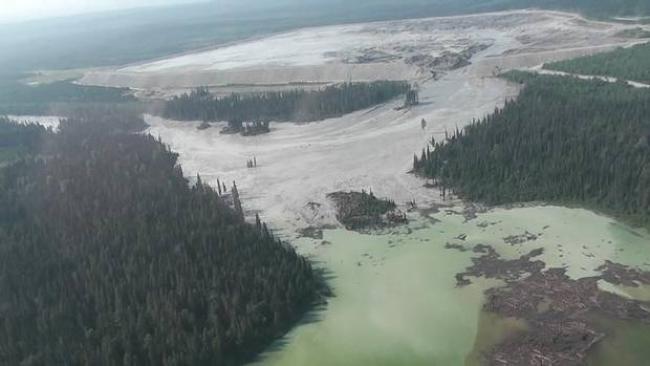Articles Menu

A coalition of First Nations, environmentalists, doctors and other community leaders are calling on the British Columbia government to launch a judicial inquiry into mining, given flaws they have cited in oversight of the industry.
“It’s in the public interest to do it. We have had repeated instances where it has been shown that the regulatory system has failed,” said Calvin Sandborn, legal director of the University of Victoria Environmental Law Centre, which has helped rally the coalition.
The 19 members of the coalition, each of which has issued an individual letter making the case for a review, hope to stir up discussion on failings in the sector during the coming provincial election campaign.
For example, he cited the breach of a copper and gold-mine tailings pond at the Mount Polley site in the Cariboo region of B.C. which, in 2014, released millions of cubic metres of water and slurry into a nearby lake, causing massive chaos.
Mining Watch Canada, an independent organization that monitors the sector, also pinpointed Mount Polley in calling for the review in one of more than a dozen letters from coalition members addressed to Premier Christy Clark.
“B.C. has seen the worst mining spill in Canada’s history – the 2014 Mount Polley mine disaster – which most independent observers have attributed not only to poor technical and corporate practices, but also to poor regulatory insight,” wrote Ugo Lapointe, a Mining Watch representative.
The Mining Watch letter noted that the mining sector in B.C. is in a “profound state of dysfunction,” citing, among other factors, unsecured environmental liability of contaminated mine site clean-up costs compared to other Canadian jurisdictions.
Chief Roland Willson of the West Moberly First Nations said his community has “deep unmet concerns” about the impacts of the industry on sacred spaces, “threatened” caribou herds and “on other significant environmental and cultural resources we have worked tirelessly to protect for future generations.”
And Dr. Jill Calder, writing on behalf of Kamloops Physicians for a Healthy Environment Society, said there are too many cases of mines operating in a “dangerous and unmonitored fashion” with “broken” mitigation promises.
“Mt. Polley is fresh in our minds, as fresh and shocking as the day it happened,” she wrote. “We need to push a ‘pause button’ on the automated approvals and hold current operations fully accountable.”
At the very least, Mr. Sandborn and other members of the coalition, say it’s time for the province to establish a royal commission led by a superior court judge to look at mining.
As a parallel, he cited the Commission of Inquiry into the Decline of Sockeye Salmon in the Fraser River that the federal government launched in 2009 after three consecutive years during which the sockeye salmon fishery was closed in the river. That commission was led by Bruce Cohen, a justice of the B.C. Supreme Court, and issued its final report in 2012.
Mr. Sandborn also said the situation with mining is akin to forestry in B.C., which was subject to reforms over the decades, guided by a series of commissions.
The coalition members are Mining Watch Canada; the First Nations Energy and Mining Council; First Nations Women Advocating Responsible Mining; the West Moberly First Nations; the Northern Secwepemc te Qelmuckw Leadership Council; the Gitxaala Nation; the Yunesit’in Government and Xeni Gwet’in First Nations Government; Salmon Beyond Borders; John Snyder; the Sierra Club of BC; the Wilderness Committee; Rivers Without Borders Canada; Kamloops Physicians for a Healthy Environment; the Kamloops Area Preservation Association; Clayoquot Action; the Northern Confluence; the Thompson Rivers University Faculty Association – Human Rights Committee; Kamloops Moms for Clean Air; and the Aberdeen Neighbourhood Association.
[Top photo: Mining Watch Canaada cited the Mount Polley mine disaster as the "the worst mining spill in Canada’s history."
(Handout/Reuters)]